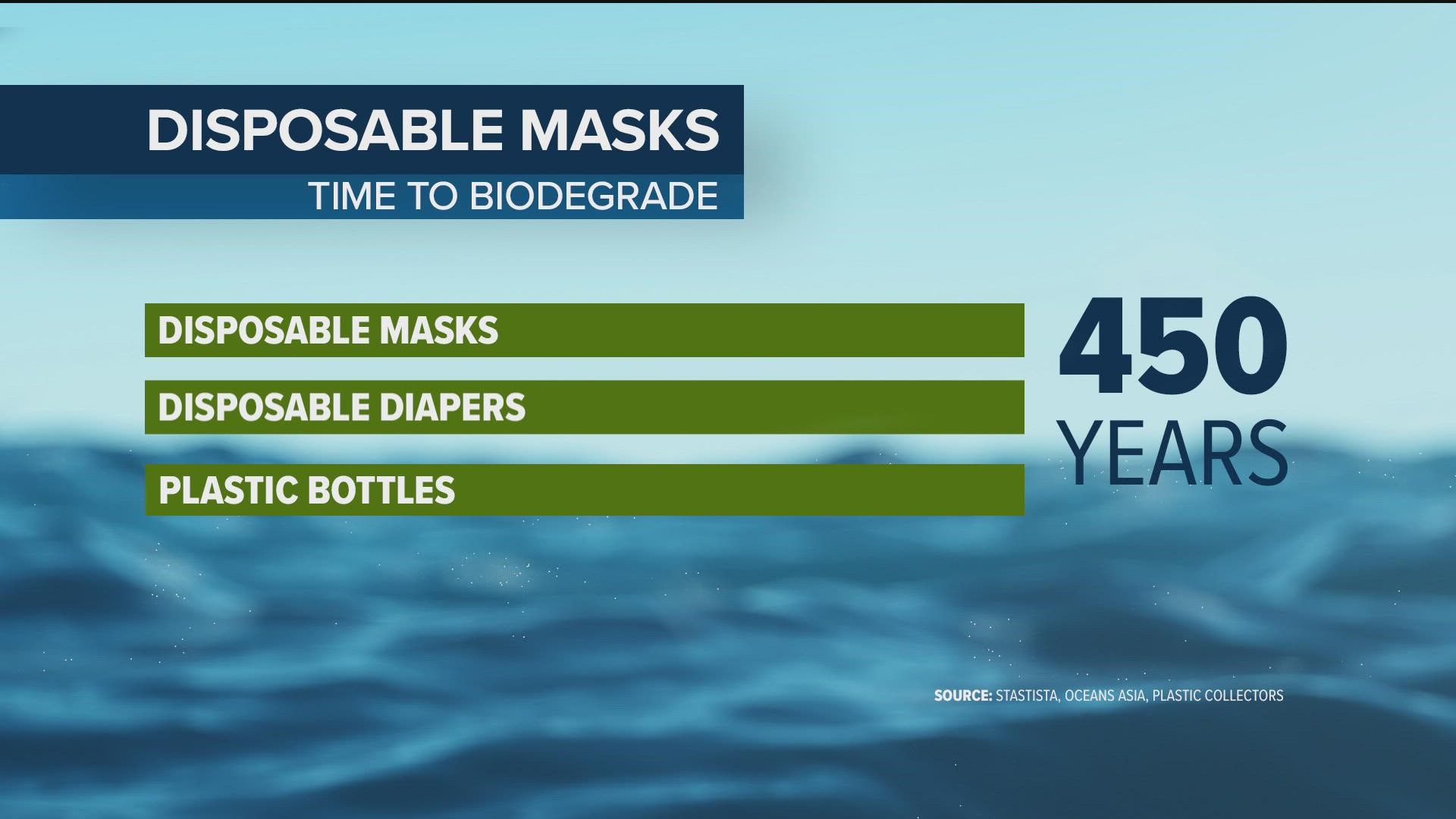SAN DIEGO — The blue face masks were what probably 95% of people wore during the peak of the pandemic and are still wearing today. However, they do not break down, so last year, I buried one in my garden to see what would happen to it a year later.
That was last winter, and since then, I've found several studies that show these masks take 450 years to break down and last as long as diapers and plastic bottles. And if you look at mask pollution going back to 2020, it would equal 7% of the Great Pacific Garbage Patch of plastic that floats in the Pacific Ocean.
Mitch Silverstein is with the Surfrider Foundation and said many masks didn't get disposed of properly. "At the height of the COVID pandemic in 2020, we were going through about 4.3 billion of these every day. It's not like these people are bad actors and just throw these things into the ocean. You can see, look at this, you open your car door, and you have one sitting on the bottom; it just flies out, and it's gone. That's why we see them everywhere."
Being made of plastic, these masks don't decompose in the traditional sense, so that is why it's so important to keep them out of the environment
When I dug up the mask, it was as expected; these things don't break down.
They're like cigarette butts or baby diapers; they last for hundreds of years; it's unbelievable. Silverstein said no one knows.
"The truth is we don't know how long it takes to completely biodegrade. Estimates go from 400 years or more," Silverstein said.
They don't biodegrade; they just break apart into smaller pieces.
"Until they become microplastics, these microplastics, in addition to completely trashing our oceans, have been found on every corner of the Earth, including in our bodies. they've been found in mother's milk, even in the placenta," Silverstein added.
In 2020, factories produced over 52 billion masks. But here's the scary part; it's estimated that 1.6 billion ended up in the ocean.
"Before 2020, I don't think we ever saw these, we never saw masks show up as an actual item on our beach clean-up data sheets, and now we pick up thousands and thousands over the last couple of years," Silverstein said.
"So, you're probably asking yourself if you're still using a mask, what should I do? Well, Surfrider has a couple of suggestions. One is to dispose of it properly, but they'd like you to invest in a reusable mask that you can sanitize yourself.
WATCH: Prices surge for KN95 and N95 masks; how to safely wash and reuse them to save money (January 2022):

